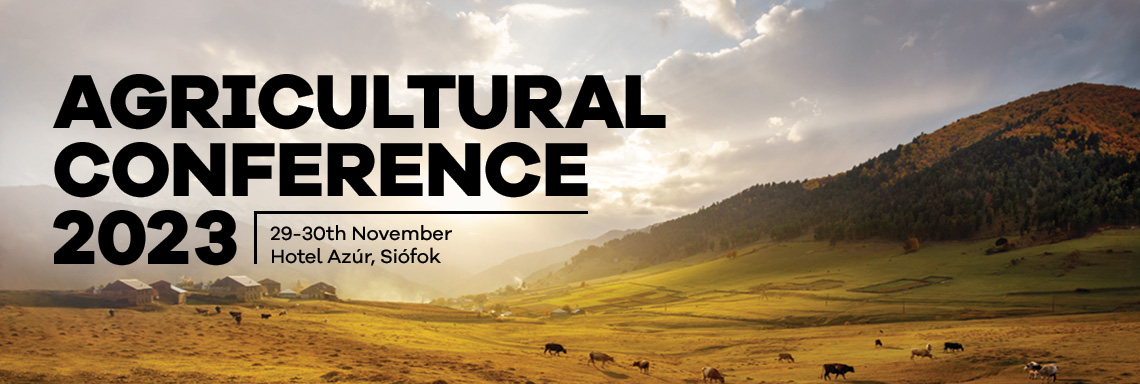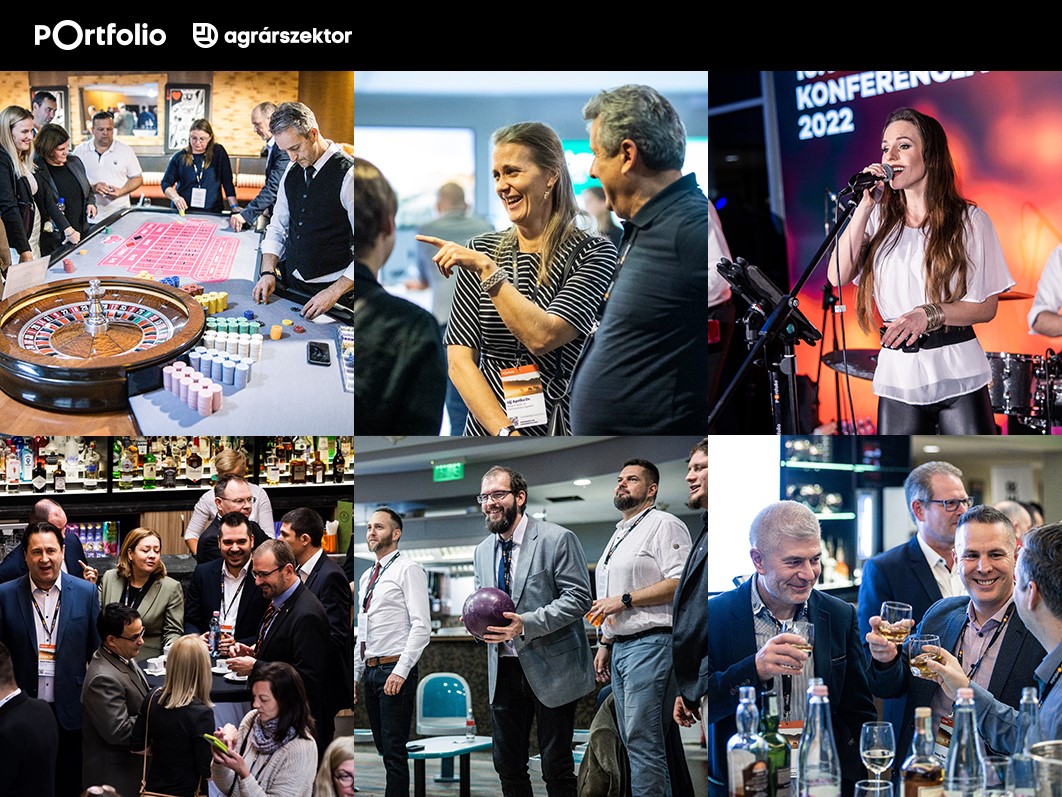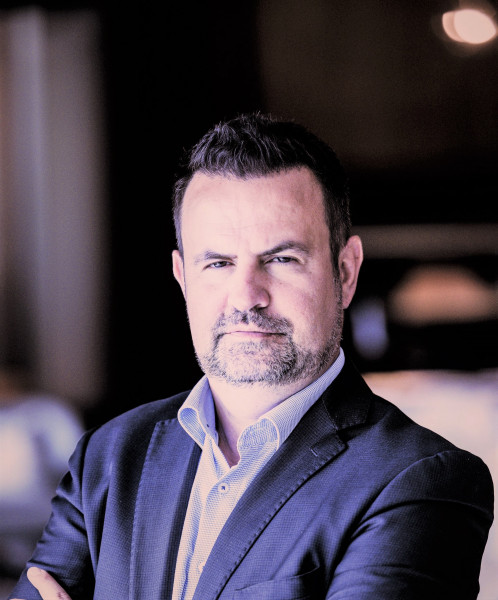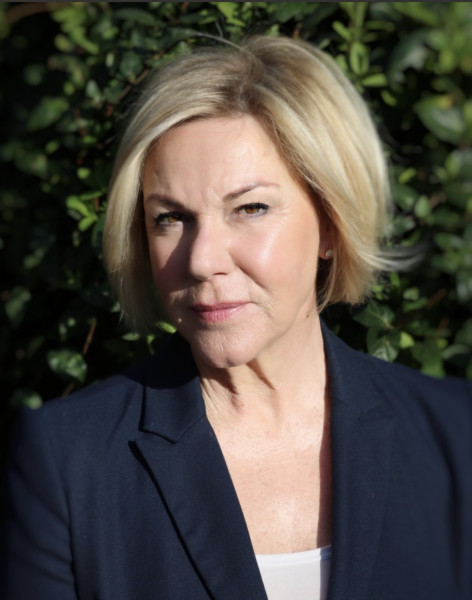



Small producers and young farmers, ATTENTION!
Are you a smallholder? Or have you started farming recently? Now you can participate in one of the largest and most prestigious agrarian events, the Agrarian Sector 2023 Conference in Siófok, between the 29th and the 30th of November with a 50% discount.
Please, fill out the following form, and Portfolio’s professional team will assess your claim so that you can redeem your discounted ticket.
If you have filled out the form, save it and send it to kistermeloikedvezmeny@portfolio.hu.
The subject of the letter: Portfolio Agrarian Sector 2023 – smallholder application
You can access the form by clicking here.
The world’s food market has become particularly hectic lately since demand and supply relations are affected by several grave and unpredictable factors. The uncertainty is present in each determining agricultural sector, especially the cereals sector, which has been subverted by the consequences of the Russo-Ukrainian war that broke out last year. The future of the food economy depends on the population explosion, climate change, and environmental protection pressure fundamentally, in addition to the effects of the war. And in Europe, the changes in EU requirements often create an impossibly difficult adjustment constraint. This session will address how Hungarian agribusiness can adapt to extreme circumstances while also struggling with severe regional market effects, what price tendencies we can expect in the global and domestic food market, and what strategies and products can render Hungarian agriculture more competitive.
How will the global food market evolve in the short- and long-term?
Which factors will determine the demand and supply relations in the food market in the following years?
What price tendencies can we expect for agricultural and food industry products?
Will there be a solution to the Ukrainian grain crisis?
How can global cereal prices evolve in 2024 and the following period?
How can domestic agribusiness actors adapt to the hectic market circumstances?
In what ways can agricultural market players make their activities more competitive?
What should be done in Hungarian agriculture in the next few years?
08:00 - 08:05
08:05 - 08:25
Adapting to an extraordinary farming environment – The biggest challenges and tasks of Hungarian agriculture in the next few years
Speaker: István Nagy, Agriculture Minister, Ministry of Agriculture
08:25 - 08:40
Should ploughing be banned in Hungary? – Key sustainability requirements for domestic agriculture
Speaker: Csaba Gyuricza, Director, Nemzeti Agrárkutatási és Innovációs Központ
08:40 - 09:35
Crisis in the world food market – How can Hungarian agriculture become more competitive?
Conversation participants:
09:45 - 10:35
Cereal market crisis due to the Ukrainian dumping – What product prices can we expect in 2024?
Conversation participants:
The economic consequences of the Russo-Ukrainian war have subverted Hungarian macroeconomic relations, and the adverse effects have also harmed the conditions for agricultural financing. Credit interest rates have risen, and demand for funding has increased while the cost and profitability prospects of agriculture enterprises have deteriorated. This session will overview the possible macro trajectory for the Hungarian economy after the shock of the war and the changes it may bring in domestic agrarian lending. We will discuss how agricultural market players can access cheaper resources, what credit discounts they can use, and in which areas new subsidised agricultural credit schemes might start. Top managers of leading domestic financial institutions will report on the new loan products that banks are launching in the agriculture market and how the main conditions and requirements for loan disbursements may change.
What direction can the Hungarian economy take after recent negative trends?
How can the Hungarian financing and interest rate environment change next year?
How do macroeconomic changes impact agricultural lending?
How can agricultural credit interest rates and other banking conditions evolve in 2024?
How can agricultural market players access cheap funding?
What subsidies are available in agrarian lending, and can we expect new subsidised state credit schemes?
What new credit products might banks introduce in the market in agriculture?
10:55 - 11:10
Is the trouble big or just the usual? Are we still searching our way or are we beyond the most difficult part? – Financial assessment of the agricultural sector’s situation
Speaker: Dávid Hollósi, Agrár- és Élelmiszeripari Üzletág ügyvezető igazgató, MBH Bank, elnök, Magyar Bankszövetség agrár munkabizottság
11:10 - 11:50
Hungarian economy after the shock of the war – Macroeconomic environment, bank financing conditions, new credit products for agribusinesses
Conversation participants:
11:50 - 12:30
Subsidised agricultural resources for survival and growth: favourable credit conditions, subsidised loans, new agricultural credit schemes
Conversation participants:
The European and domestic feed market has recently tightened as livestock numbers have fallen significantly for economic and market reasons. The good news from a foraging and animal husbandry perspective is that the price of grains, the main ingredient in animal feed, has dropped markedly. With the participation of leading domestic forage producers, the session will explore how forage costs might change and what cost implications livestock farmers can expect in the coming period. Experts will review the main foraging trends and the modern products and technologies that can help livestock operators make their livestock sectors more efficient. The session will also cover alternative feed solutions, including the growing use of insect proteins in agriculture and food.
What are the main trends in the European and domestic feed markets?
What feed prices can livestock farmers expect in the coming period?
How might the cost of feed for livestock farmers change?
What are the latest product and technological developments in modern feeding?
What alternative feeding methods can livestock farmers choose?
How can insect proteins be used in animal feeding nowadays?
13:30 - 13:40
In doubt, on shaky ground: soy is our future, we are showing the way
Speaker: Zoltán Bene, cégvezető, Karintia Kft.
13:40 - 13:50
Compass in foraging after a year-long rollercoaster ride – Roadmap 2024
Speaker: Zoltán Kulik, vezérigazgató, Vitafort Zrt.
13:50 - 14:40
Basic requirements for optimal feed use – Expected price trends, efficient feed solutions in a hectic market environment
Conversation participants:
14:40 - 15:10
Are insect proteins taking over? – Domestic perspectives on alternative feeding
Conversation participants:
Precision farming has become indispensable in domestic agriculture for farmers who want to produce with modern tools and achieve a dramatic efficiency improvement. This session will bring together experts from leading machinery distributors to show when the use of precision tools is worthwhile, i.e., what costs and returns we can expect in each crop. The session will cover the latest development trends in precision farming and include a roundtable discussion on artificial intelligence's possible role in agriculture and how agri-digitalisation solutions can support farmers who choose precision farming.
How does precision farming increase the efficiency of agricultural production?
When can the use of precision tools and technologies be profitable?
What should you consider when choosing and purchasing precision tools?
What role can artificial intelligence play in agriculture?
How can agri-digital solutions support precision farming?
What are the latest development trends in precision farming and agri-digitalisation?
13:30 - 13:40
The role of technological development in precision agriculture – Satellite positioning under increasing solar activity
Speaker: Péter Ákos Mesterházi, precíziós gazdálkodási csoportvezető, Axiál Kft.
13:40 - 13:50
13:50 - 14:30
When is it worth it? - Cost and return ratio of precision farming – New machine developments, mechanisation, and machine financing solutions in 2024
Moderator: Gábor Milics, tanszékvezető egyetemi docens, Magyar Agrár- és Élettudományi Egyetem
Conversation participants:
14:30 - 15:10
A digital revolution in agriculture – The role of artificial intelligence in agribusiness
Moderator: Péter Miklós Varga, alelnök, Magyar Precíziós Gazdálkodási Egyesület
Conversation participants:
The energy price boom caused by the Russo-Ukrainian war has brought about a major disruption in the daily life of domestic agribusinesses, driving up farming costs. Although energy market tensions have eased to some extent, the question of what energy costs agricultural operators can expect in the short and longer-term remains a key issue. This session will review the main factors affecting the energy market, forecast the likely evolution of energy prices, and outline the main aspects that agricultural businesses should consider when entering into energy contracts. Another accentuated topic in this session will be the questions concerning the pesticide market, one of the most important of which is how the EU debate on reducing pesticide use can be resolved. In addition, experts will discuss market price developments, as well as product development trends in the industry and new formulations for crop production.
What are the main factors affecting the energy market?
What energy prices can domestic agribusiness players expect in the coming period?
What should be considered when signing new energy contracts?
Can energy costs for the agricultural sector be substantially reduced?
How can the EU debate on the reduction of pesticides be resolved?
What regulatory changes could affect domestic pesticide users?
What could happen to pesticide prices in the coming period?
What are the main product development trends in the pesticide industry?
What new pesticides can crop producers use?
13:00 - 13:15
Green Cloud: green energy to retain competitiveness
Speaker: Gábor Tihanyi, Green Energy Solution Leader, E.ON Energiamegoldások Kft.
13:15 - 14:10
Have we survived the energy crisis or is the hard part yet to come? – What should energy market players expect and how can agribusinesses enter new agreements?
Moderator: Attila Weinhardt, Senior Analyst, Portfolio
Conversation participants:
14:10 - 14:20
Pesticide manufacturers in the service of complex integrated production
Speaker: Róbert Görög, Managing Director, Hungarian Crop Protection Association
14:20 - 15:10
Will there be a drastic decrease in the use of pesticides? – Heated EU debates, price tendencies, new product developments in the pesticide market
Moderator: Róbert Görög, Managing Director, Hungarian Crop Protection Association
Conversation participants:
Hungarian food companies are not in an easy situation as they are facing a substantial loss of markets due to the drastic economic changes of the last period. Domestic consumption is declining, the threat of imports is increasing, while new regulatory requirements, such as those on packaging materials used in the industry, are increasing costs. The session will focus on how companies in the industry can increase their efficiency in today's environment and what government and other development programmes they can use. Trends in the food market and changing consumer and trade expectations will be on the table, as well as how much the extended producer responsibility could cost companies. This session will also discuss ways to improve supplier-consumer relations in the food economy, using McDonald's and the Mater Good group as examples.
What are the main trends in the domestic food market?
How can consumer demand for food develop?
How might the market positions of different industries change?
How much of a market loss and import risk do food companies face?
How are trade expectations towards food companies changing?
How much could extended producer responsibility for packaging materials cost food companies?
What development resources can the food industry use in the coming years?
What are the main break-out opportunities for the industry?
13:00 - 13:10
Serious challenges and great possibilities in the Hungarian food industry
Speaker: Ákos Varga, Chairman of the board, UBM Group
13:10 - 14:10
Break out opportunities for the domestic food industry: development trends, support programmes – Worrying decline in consumption and market loss, trade expectations
Moderator: László Friedrich, university professor, institute director, Hungarian University of Agriculture and Life Sciences
Conversation participants:
14:10 - 14:40
Horrible fee increase in the food industry due to package materials – How much does extended manufacturer responsibility cost?
Moderator: Lajos Braunmüller, Editor, Portfolio
Conversation participants:
14:40 - 15:10
How can we become successful suppliers? – The experience of an international giant and a leading company in the Hungarian poultry market
Moderator: Lajos Braunmüller, Editor, Portfolio
Conversation participants:
Domestic horticulturists are at a crossroads, as it has become clear that only intensive and high-yield security production solutions can be successful in the market. Operators in the sector need to respond to the adverse effects of climate change, plant new species, and apply modern precision and digitalisation techniques that define modern farming in both fruit and vegetable production. The session will overview the market situation and prospects for the horticultural sector and the development and financing opportunities for production and processing in the coming period. The experts will also analyse consumption and trade trends affecting the fruit and vegetable market and the possibilities for integration and cooperation to enable a more effective market presence.
What are the main commercial and consumption trends in the domestic fruit and vegetable market?
How can horticultural businesses protect themselves against climate change?
What kind of plantation structure does the fruit sector need?
What are the main criteria for species selection in the vegetable sector?
What are the benefits of integration for horticulture?
What do precision farming and digitalisation mean for horticulture?
What investments and subsidies can make horticultural production more profitable?
14:00 - 14:15
The dawn of space horticulture in Hungary – Not a utopia or science fiction
Speaker: Miklós Gábor Fári, Professor Emeritus, University of Debrecen, Faculty of Agricultural and Food Sciences and Environmental Management, Department of Applied Plant Biology
14:15 - 15:10
Hungarian horticulture in the trap of climate change – Hectic buyout prices, urgent change of species, pressing developments
Conversation participants:
The situation of livestock production has become particularly unpredictable recently, with all major sectors being adversely affected. Costs and purchase prices have changed rapidly and hectically, and profitability has been fundamentally affected. The pig and poultry sectors are in a slightly better position this year, while dairy farmers are experiencing particularly demanding farming conditions. The session will address how the production and market opportunities for livestock farmers are predicted to evolve in the coming period, what purchase prices can be expected, and how the support situation in the sector will change. The roundtable discussions will also cover the sector's investment and development needs and key animal health issues.
What purchase prices can livestock farmers expect in the coming period?
Under what conditions can domestic livestock farming be profitable in the long term?
How might the main cost drivers change in 2024?
What public support can farmers benefit from?
What is the animal health situation in the main sectors and how might animal health requirements change?
What support schemes are available for livestock development?
15:30 - 15:40
Benefits, opportunities, and challenges of horizontal integration in livestock production
Speaker: Csaba Smied, CFO, Alföld Agricultural Cooperative
15:40 - 16:20
Profitability outlook for the main livestock sectors – Buying out prices, animal health challenges, regulatory and support changes in 2024
Moderator: Zoltán Fórián, vezető agrárszakértő, Agrár Kompetencia Központ Erste Bank Zrt.
Conversation participants:
16:20 - 17:00
Portfolio Dairy Farming Forum: Dropping milk prices, plant closures, declining consumption – The future of the dairy sector in Hungary, crisis management measures by the state
Conversation participants:
Drone use has become a spectacularly developing field in domestic agriculture, so drones will assuredly become increasingly crucial in agriculture shortly. The fact that regulatory and other barriers to the legal use of drones have now been virtually removed could accelerate their spread. This session will outline what farmers need to do to use drones legally, the costs and expected benefits, and the main agricultural activities where drones can pay off. The experts will also examine the main pitfalls of drone use today and how to minimise the risks within a legal framework.
Who should use drones in agriculture?
Which sectors are most likely to benefit from drones?
How much do drones cost, and what are the operating costs?
What types of drones can you use in agriculture?
Who can be drone pilots, and how?
What are the conditions for legal drone use in agriculture?
What pesticides can be applied by drones?
What should we pay particular attention to when using drones, and how can we minimise risks?
What further legislative changes are expected in the use of drones?
15:30 - 15:50
How can drone use be integrated into farming? – The most important aspects of returns
Speaker: Máté Keczer, ügyvezető helyettes, ABZ Drone
15:50 - 17:00
Where and how can we use drones in agriculture? – Conditions of legal drone use, market snapshot, regulatory environment
Conversation participants:
Discussions are ongoing in Brussels on regulating genetically modified crops created using new gene-editing techniques, and the European Commission's package of proposals might spark another heated EU debate on GMOs. For example, the draft regulations could bring gene editing, which many see as a GMO process, to the fore, while others argue that plants treated in this way are not GMOs. This session will look at the impact that legislative ideas on gene manipulation techniques could have on plant breeding and the seed market, with a particular focus on the Hungarian regulatory framework. In addition, the roundtable will discuss, among other things, the requirements of climate change for seeds in some key crops and the variety supply that farmers can expect on the domestic market in 2024.
What do new EU ideas on gene management techniques comprise?
What is the difference between genetic engineering and GMOs?
Is a total ban on GMOs justified in Hungary, or should certain gene manipulation techniques be used?
What requirements does climate change place on plant breeding and seeds?
Which varieties of key crop species could be promoted on the domestic market?
What variety supply and seed prices can farmers expect in 2024?
15:30 - 15:45
The concerning climate change: increasing uncertainty in arable lands
Speaker: Lajos Németh, meteorológus, szakmai tanácsadó, Karintia Kft.
15:55 - 16:10
GMO, gene manipulation, genome editing, precision breeding: let's clarify the terms, the advantages and disadvantages!
Speaker: László Palkovics,
16:10 - 17:00
The GMO debate fires up again: New proposal from Brussels on plant breeding, climate change impacts on the seed market, domestic variety supply in 2024
Conversation participants:
Agricultural marketing plays a decisive and increasingly important role in enabling agribusinesses to compete successfully in an increasingly competitive market. This session will discuss the (public) instruments operators can use to access markets and expand their market activities. It will cover, among other things, consumer promotion campaigns, foreign and domestic exhibitions, and tenders that can strengthen the market and gastronomic position of Hungarian products. In addition to domestic marketing and sales opportunities, the session will also address the directions and main issues of export development and financing.
How can effective agricultural marketing contribute to the success of agribusinesses?
What role do public programmes play in agricultural marketing?
What are the best tools for entering new markets and market expansion?
What new consumer promotion campaigns can the Agricultural Marketing Centre launch?
Which national and international exhibitions should agricultural companies attend?
Which tenders can strengthen the market position of domestic agricultural products?
In which export directions can the domestic agricultural economy expand?
What are the best opportunities for export development and export financing?
15:30 - 15:50
Meneküljünk előre! - A magyar élelmiszerexport világpiaci lehetőségei
Speaker: Gergely Giczi, Deputy General Manager, Agricultural Marketing Centre
15:50 - 17:00
Increasing profit through effective agricultural marketing – Effective tools for domestic market access and key questions of export expansion and financing
Conversation participants:
This year has had a disastrous impact on beekeeping, as farmers say it has never been so difficult to sell their products. Buying has largely stalled or stopped, and prices are low. The situation has led to more and more beekeepers giving up honey production, making the sector's future uncertain. The experts in this section will outline the causes of the current crisis and the interventions needed to improve the production and market position. Another burning question is whether the sector can expect further support and whether national and EU regulatory proposals will be drafted to help beekeepers survive.
What is causing the oversupply and price depression in the honey market?
How can imports of honey from China and Ukraine be curbed?
What further action is needed to combat honey counterfeiting?
What price trends are expected to prevail in Hungary and the EU in the coming period?
How can consumer demand for honey products develop?
Can domestic beekeepers receive crisis mitigation aid?
What regulatory changes are needed to stabilise the domestic honey market?
15:30 - 15:50
Apiary subsidies from EU and national funds
Speaker: László Angyal, Head of Department, Hungarian State Treasury
15:50 - 17:00
Severe honey market anomalies, desperate producers – What will be your fate, Hungarian apiary?
Conversation participants:
A pivotal question for domestic agricultural market players is in what direction and to what extent they should develop their farming and business activities. Investment decisions are always risky, but they have become even more so today because of the increasing number of extraordinary events and trends with a long-term impact on economic and market developments. The session will seek to identify the main development opportunities for the domestic agriculture and food industry in a unique way and the factors that need to be considered most when making investment decisions. The experts of the roundtable discussion will analyse the farming areas that may have the most perspective for the agri-food sector's development.
What are the main strengths and weaknesses of the Hungarian agriculture and food industry?
Which are the most decisive factors in the future of Hungarian agriculture?
What are the main risks of investing in agribusiness?
What should agricultural businesses pay the most attention to when making investment decisions?
Which can be the most promising areas for development in agriculture and the food industry?
What support environment is needed to stimulate agricultural investment?
17:00 - 17:15
Lessons learnt from a HUF 20 billion investment programme realised in animal husbandry
Speaker: Sándor Tóth, általános vezérigazgató-helyettes, Nagisz Csoport
17:15 - 18:00
What should we invest in for success? – The best investment possibilities in Hungarian agribusiness
Conversation participants:
This year, we recognise the most outstanding performances in Hungary in 10 categories.
Portfolio Group will acknowledge the most successful and outstanding agribusiness actors again this year at the most important agrarian event of the year, the Agrarian Sector 2023 Conference. The winners will be selected by a prestigious jury who will decide on the following:
Woman Agripreneur of the Year,
Young Agripreneur of the Year,
Horticulturist of the Year,
Livestock Producer of the Year,
Crop Producer of the Year,
Agricultural Innovation of the Year,
the winner of the Award for Sustainable Agriculture,
Agricultural Investment of the Year,
the Portfolio Award for Agribusiness,
and the Jury’s special prize.
The awards will be presented on the 29th of November at a ceremony.
You are all invited and welcome at the awards ceremony and the event as well.
After the awards ceremony, everything will be given for our participants to discuss the most exciting professional issues and create new partnerships and business links or tend to the existing ones in a relaxed atmosphere.
We provide various programmes for your evening entertainment, as usual:
Participate in a Casino Party with your colleagues
Roll a ball in the hotel bowling alley
This year, we also considered lovers of quality beers, wines, champagnes, pálinka and gins.
Stay with us until the end of the evening for a stuffed cabbage to close the event at midnight.

19:00 - 23:55
Free foodtruck terrace
19:00 - 23:55
Casino party - Poker, Blackjack, Rulett
19:00 - 23:55
Bowling
23:30 - 23:55
Midnight stuffed cabbage
This year has been a learning year for the new EU Common Agricultural Policy (CAP), which came into force in January and has brought many important changes, especially for first pillar direct payments. This session analyses how farmers' support position has evolved in 2024 and what farmers need to do to get the most support under the new system. Based on this year's experience, we will discuss what immediate changes are needed in the Hungarian strategic plan to secure EU support and how the Hungarian State Treasury will develop its control and payment practices for next year. The session will also review the ongoing EU debates on the CAP and the European Green Deal, the outcome of which could have a decisive impact on the regulatory and support conditions/stringencies under which the Hungarian agricultural sector will have to operate in the coming years.
What are the most useful lessons learnt from the application of the new EU Common Agricultural Policy domestically?
How has the support position of Hungarian farmers changed under the first pillar of the new CAP?
Who will receive more and who will receive less agricultural support in 2023?
What should farmers do to get the most EU support possible?
What urgent changes are needed in the Hungarian Strategic Plan for 2024?
How much support can Hungarian farmers receive next year under the first pillar of the CAP?
How will the Hungarian State Treasury control the use of subsidies in 2024?
In light of the EU debates, what direction can the CAP take in the coming years?
What will be the fate of the European Green Deal?
08:45 - 09:00
HonestFood’s vision and mission – Be part of the change!
Speaker: Giacomo Pedranzini, Executive Director, Kometa 99
09:15 - 10:15
Has the new EU Common Agricultural Policy brought more or less support for farmers? – Experiences of the first year, ideas for changes to the Hungarian strategic plan, the future of the EU Green Deal
Conversation participants:
It is little known to participants in the domestic agricultural sector that they can obtain significant agricultural funding from Brussels not only through the EU Common Agricultural Policy but also directly from outside it. The session will explain which funds are part of the so-called direct EU funds and which domestic agricultural market players may have the opportunity to obtain direct funding. The roundtable discussion will also reveal what needs to be done to ensure that Hungarian agriculture can also access directly managed funds from Brussels, which activities can benefit from these funds, and how to apply for them.
What is the significance of EU funds under direct management?
How much money is available, and how much can agriculture apply for?
Which domestic agricultural operators are eligible for direct funding?
For which purposes can direct EU agricultural funds be obtained?
What should domestic agricultural businesses do to be eligible for direct funds?
What are the main tender specifications and criteria?
10:35 - 10:50
Directly managed development funds in the European Union – How can Magyar Fejlesztésösztönző Iroda help businesses?
Speaker: Bernadett Petri, ügyvezető igazgató, Magyar Fejlesztésösztönző Iroda (MFOI), Közigazgatási és Területfejlesztési Minisztérium közvetlen uniós források felhasználásának koordinációjáért felelős miniszteri biztos
10:50 - 11:40
There is life beyond the EU CAP – How can domestic agricultural operators get more direct access to Brussels funds?
Conversation participants:
A change of mindset is needed in domestic agriculture to enable farmers to meet the demands of modern farming in the long term. In addition to business profitability, farmers have to face the growing demands for sustainability, environmental protection, animal welfare and modern nutrition, which domestic agribusiness operators must adapt to if they want to stay in the market. The Portfolio Group aims to pioneer in providing the appropriate information to support and accelerate the inevitable change in farmers' attitudes. The roundtable discussion will summarise the main trends and directions that all actors in the domestic agricultural sector will have to adapt to sooner or later.
What are the most important sustainability requirements in agriculture?
What are the main climate change, environmental, animal welfare and other aspects that determine the requirements for agricultural production?
How should a farmer who wants to meet sustainability requirements produce?
What restrictions are expected in agriculture due to the sustainability goals?
What will the sustainable farms of the future look like in Hungary?
What sustainability changes can consumers force in agricultural production?
11:40 - 11:55
11:55 - 12:40
If you don’t take it seriously, you’ll fall behind: the most important conditions for a greener and more sustainable agricultural production – Struggle against climate change, agricultural trade of carbon dioxide quotas
Conversation participants:
In the context of accelerated technical and technological progress, it has become vital for domestic agricultural market players to keep up to date with the latest developments in agribusiness innovation. Adopting and applying new products and farming management practices can guarantee that agricultural enterprises can operate more efficiently and marketably in the modern age. The session will introduce, in ten-minute presentations, the outstanding and exemplary developments in agriculture innovation in Hungary.
11:40 - 11:50
Robots in agriculture – Technologies and concepts existing today
A mezőgazdasági termelési folyamatokban egyre nagyabb teret nyernek az autonóm gépek és berendezések. Robot alatt azt a berendezést (általánosabban ágenst) értjük, amely a dinamikus környezeti változókat képes érzékelni, értelmezni és működését ennek megfelelően alakítani. Az előadás ismerteti a ma már létező technológiákat és azokat a koncepciókat, amelyek a jövő fenntartható mezőgazdasági termelését támogatják majd.
Speaker: István Szabó, Professor, Director of the Institute, Magyar Agrár- és Élettudományi Egyetem Műszaki Intézet
11:50 - 12:00
Robotisation and digitalisation in the food industry
Az előadás áttekinti az élelmiszeripari automatizálás és digitalizáció lépéseit, szükségességét. Néhány referencia segítségével bemutatja a már megvalósult robotizációs és digitalizációs rendszerek előnyeit.
Speaker: Péter Szakos, F&B account manager, Siemens Zrt.
12:00 - 12:10
Combating pests with automated data collection – Digital pest monitoring and decision support for a better yield
A gazdáknak számtalan kihívással, kiszámíthatatlan és extrém körülményekkel kell megküzdeniük. A SMAPPLAB megoldása korai riasztásokat nyújt a kártevőkről, így a termelők időben megtehetik a szükséges intézkedéseket. Csökkenthet a növényvédőszer-felhasználás és biztosabbá válhat a termés.
Speaker: Anna Bereczki, COO and Cofounder, SMAPPLAB Kft.
12:10 - 12:20
Innovative microbiological solutions – Yield impact verified by digital measurement
Az Indigo Ag egy bostoni székhelyű, 2013-ban alapított technológiai startup vállalat. Célja Magyarországon, hogy olyan innovatív megoldásokat juttasson el a termelőkhöz, amelyek jelentős terméshozam- és talajegészségügyi javulást eredményeznek, így növelik a jövedelmezőséget. A cég 2020 júliusa óta eltelt több mint három évben bevezette a magyar termelők számára a globális piacon is innovatív fejlesztést jelentő, a vetőmag felületére por formában a vetéssel egyidőben kijuttatható Biotrinsic® mikrobiológiai termékeit, amelyekkel a szárazság és tápanyaghiány okozta stresszben növényspecifikusan hozamnövekedés érhető el.
Speaker: Nikoletta Szanka, Commercial manager, Indigo Agriculture Hungary
12:20 - 12:30
Shade balls in agriculture: an innovative solution for water management
A mezőgazdaságban az öntözés akkor valós és helyes megoldás, ha fenntartható vízgazdálkodáson alapul. Az EURO-MATIC mezőgazdasági takarólabdájával az öntözéshez tárolt víz párolgási vesztesége akár 90 százalékkal csökkenthető, egyszeri telepítéssel, a vízminőség megőrzése mellett, gondozásmentes „üzemeltetéssel” évtizedeken át. Az előadás bemutatja, hogyan alkalmazzák a terméket régóta sikerrel a nyugat-európai gazdaságok és hogyan realizálhat a magyar mezőgazdaság is jelentős megtakarításokat már rövid távon is.
Speaker: Marcell Biró, Business developer, Jelenleg az Euro-Matic Ltd.
12:30 - 12:40
Data-based agricultural innovation for small and medium-sized farmers
Az előadás bemutatja azt az integrációs platformot, amelyet kifejezetten a kis- és a közepes gazdálkodók számára fejlesztettek ki. A legfontosabb talaj- és a környezeti adatokat IT-üzemeltetési nehézségek nélkül, központi felhő infrastruktúrában, központi skálázható és személyre szabható keretrendszerbe lehet integrálni.
Speaker: Bulcsu Gödri,
The fertiliser market has undergone a major shift as fertiliser prices have fallen dramatically after the previous price boom. This is a positive change for farmers but still creates uncertainty about price trends in the coming period. This session will bring together representatives from determining fertiliser manufacturers and distributors to discuss how the factors that most influence fertiliser prices are predicted to change in the near future, what price conditions may emerge in 2024, and what supply farmers may face. In parallel with fertiliser prices, crop prices have also fallen significantly, which complicates the situation and could again make it difficult for farmers to buy fertilisers. Therefore, the experts also outline the main considerations that farmers should keep in mind when deciding on their fertiliser purchases.
How might fertiliser production costs change in the coming period?
What are the potential fertiliser prices on the domestic market in 2024?
What fertiliser supply could farmers face on the EU and domestic markets?
Should farmers buy domestic/EU or imported fertilisers?
How will low crop prices affect fertiliser sales?
How have domestic fertiliser sales developed recently?
What should farmers consider when buying fertilisers in terms of costs and expected yield averages?
13:40 - 14:40
A change in trends and teeter-tottering prices in the fertiliser market – How will manufacturers react, and what can farmers expect?
Conversation participants:
A key question for the Hungarian agricultural economy could be how to put agricultural innovation developments into practice in the fastest and smoothest way. Therefore, you must not only be informed but also put the available innovations into practice in production. The session will show how to learn about and effectively exploit innovation results in production. It is also important to understand how different developments can be tested and adapted to the operation of agricultural enterprises and how enterprises can influence technical and technological innovation processes according to their own needs.
Which areas of the domestic agricultural economy are most in need of innovative products?
How much competitive advantage can the rapid application of innovative products and technologies provide for agricultural enterprises?
How can innovation results be translated into practice?
How can actors in the agricultural market be informed about new developments?
How can agricultural innovation products and technologies be adapted to business needs?
How can agricultural enterprises influence innovation processes?
13:40 - 13:50
Main characteristics of an agri-innovation ecosystem – Why is it worth building on startups?
Speaker: Balázs Holán, Innovation Project Manager, Hungarian Chamber of Agriculture
13:50 - 14:40
Innovation in practice - How can agribusiness enterprises exchange innovation results for profits?
Conversation participants:
In the autumn, the Ministry of Agriculture is expected to announce the new calls for proposals as part of the Rural Development Programme under the second pillar of the EU's Common Agricultural Policy. Although the ministry has already committed part of the 2023-2027 rural development funding envelope, there could be thousands of billions in new tender opportunities for the sector. This session will scrutinise the areas where calls for proposals are likely to be launched, their amounts, and how agribusinesses can apply. It will also discuss how the conditions for applications, evaluation, and disbursement may change and how the Hungarian State Treasury monitors the use of rural development funds.
What is the timetable for new tenders under the Rural Development Programme?
For which agri-business developments will new tenders be launched, and how much funding will be available?
How much support can agricultural enterprises receive in the new tenders?
What will the new evaluation and assessment criteria be?
When will agricultural operators have access to rural development funds?
What are the criteria and the schedule for controls on rural development support by the Hungarian State Treasury, acting as the paying agency?
14:40 - 15:00
New calls for proposals under the Rural Development Programme – Application opportunities and conditions
Speaker: Zsolt György Papp, helyettes államtitkár, Agrárminisztérium
15:00 - 16:00
The eagerly awaited new tenders in the Rural Development Programme are coming – What are the conditions for Hungarian agricultural enterprises to receive funding from 2024?
Conversation participants:
An essential question for the coming year is whether arable production in the main crops can be profitable. The problem is not only falling and unpredictable crop prices but also the recent cost overruns, which have only partially recovered, and the rather uncertain sales market conditions. The session will look at the costs and returns of the main arable crops and will seek to give guidance on what farmers should sow in the spring and, assuming weather conditions are right, how much profit they can expect to make on their crops next year. This session will also look at issues of economical land size, land rents and land price developments, which are important cost factors.
How can the profitability of the main arable crops develop in 2024?
At what average yields can wheat and barley production be expected to be profitable?
Is it worthwhile for farmers to sow sunflowers and corn in spring?
Can rapeseed production be profitable next year?
In arable production, what is an economically viable farm size in Hungary today?
How much will land rents increase in the coming years?
Will land prices continue to rise in the domestic market?
Are further changes to land regulations expected?
14:40 - 15:00
Land policy updates: Changing land use legislation
Speaker: Tamás Andréka, State Secretary, Ministry of Agriculture
15:00 - 16:00
Arable crop production profitability prospects in 2024 – Economic farm size: land rents, land prices
Conversation participants:
Super Gold Sponsor
Main professional partner
Gold+ Sponsor
Gold Sponsor
Silver Sponsor
Silver/Expert Sponsor
Whiskey bar of the reception is sponsored by
Rum bar sponsor
Sponsor of the Smokey Monkies
Bronze Sponsor
Cultural Partner
Charity partner of the conference
In association with
Main Media Partner
Media Partner
Sponsor of the wine selection
Sponsor of the pálinka sortiment
Carbon Offsetting Partner
Accessibility Partner
Organisation, general questions

Sponsorship


Program
